Between 1850 and 1937 the Paris Expo bestowed praise and awards on many musical instrument manufactures, including various pianos and piano designs, at their annual show. This span of time was also an interesting period in the history and development of the United States of America. We were trying to establish our country’s legitimacy before a world audience. We were indeed a great experiment, but were we yet a great nation – and according to whom?
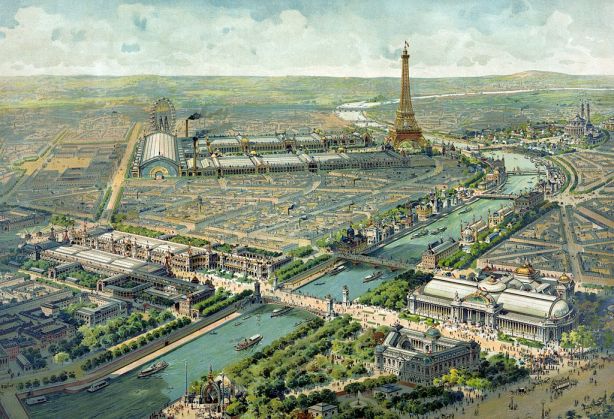
Paris Expo in 1900. “Vue panoramique de l’exposition universelle de 1900” by Lucien Baylac – This image is available from the United States Library of Congress’s Prints and Photographs division under the digital ID ppmsca.15645< Licensed under Public Domain via Commons.
In 1850, the U.S. was regarded by influential Europeans and their representative institutions as a rather barbaric country. As our country became a world leader over the next 100 years, there was early on a pressing need for validation of our progress and achievements from established authorities in each of many fields. Those authorities were all in Europe. The experts in every field, fine arts, architecture, music, manufacturing, technology, city design, all lived in Europe. Piano companies, seeking an objective and qualified credential of excellent product quality, headed to the Paris Expo (and other expos) to compete for recognition and standing.
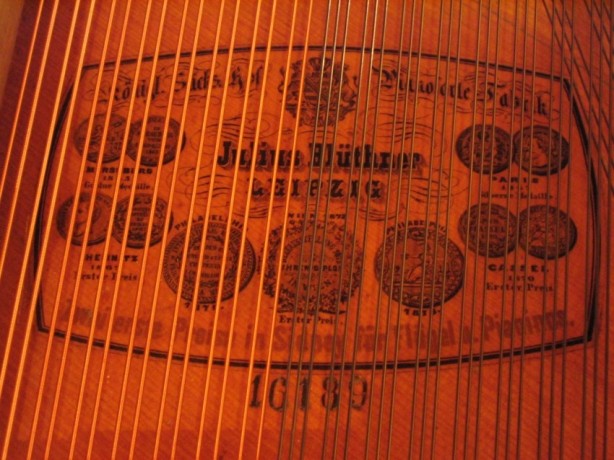
A Bluthner piano sporting an abundance of decal replicas of hard earned awards of excellence at competitions.
American manufacturers made blustery claims of excellence in their sales literature, but the only way to settle the matter as to who had the best piano was to appeal to non-partisan experts in order to settle disputed claims of dominance. Winning an award was high praise for a piano manufacturer. Soon, those awards were displayed on decals on the pianos that were offered for sale. You can still see many pianos today that have decals sporting old awards of superior quality, but it is not always the case that customers gain a true appreciation for what those awards meant to our earliest manufacturers, designers, inventors and all other innovative thinkers in a multitude of fields, most notably among them was the field architecture.
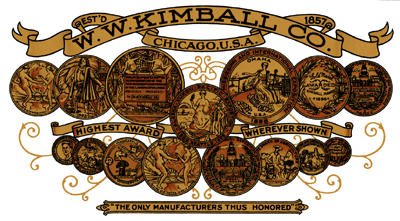
Kimball pianos, as part of their incredible marketing campaign, displayed a large collection of early medals and awards on later day pianos. The names of the awards were of less conspicuous contests, such and Mississippi and Pacific Expo, hardly on par with the Paris Expo.
The U.S. in 1850 had not yet made its mark in architecture. We had not established ourselves as a unique and independent civilized culture. In fact, the question of our status as a civilized country was scrutinized even more after the several states seceded from the Union to establish the Confederate States of America. While Americans fought brother against brother in a very brutal and uncivilized war, high-minded Europeans must have scoffed frequently at our prospects as an emerging country. That doubt withered away eventually because of our achievements during the early years of the Industrial Era, but the most significant proof of our national claim of legitimacy would come in 1933 and 1936 with the respective crowning achievements realized when we built the Chrysler Building and the New York Empire State Building. New York, New York itself had emerged as a somewhat modern city. In those moments, it became clear to everyone that the United States of America was here to stay, and had established itself as a new authority in a broad array of matters. We no longer needed to appeal to the authorities in Europe for validation.We had earned our place at the table and proved to the world that we were capable of raising the standard of excellence in every field of expertise.
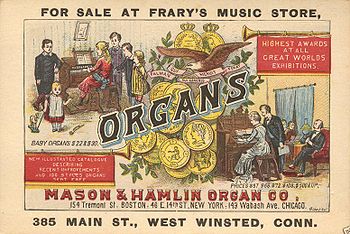
Mason & Hamlin Organ advertisement emphasized they had won the “Highest Awards at all Great World’s Exhibitions”.
Today we are so certain of our standing as a world leader that we have no recollection of ever having to appeal to someone else in order to validate the legitimacy of our claims. It is perhaps wise that we remember that at one time we were in fact dependent on the whim and temper of European experts. The validations of our accomplishments were dependent on the authority of others.



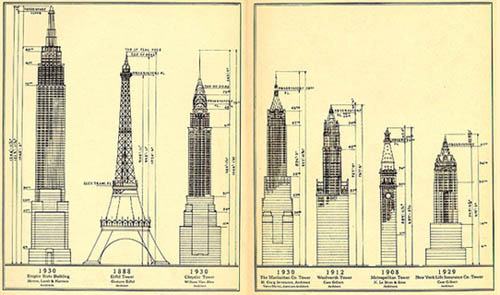
You must be logged in to post a comment.